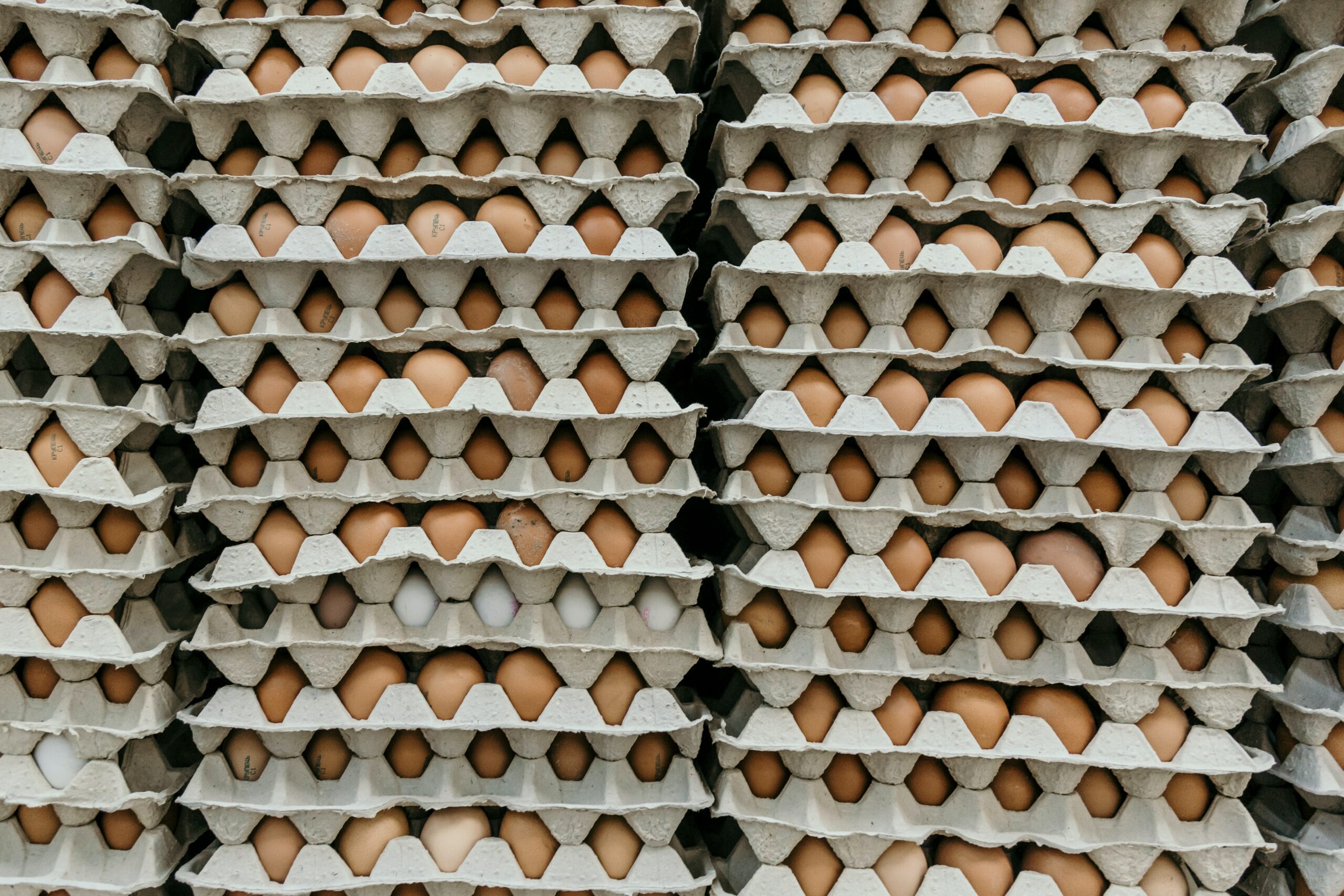The ongoing UK egg shortage is causing price increases for customers of up to 50%…
What are the true causes? And how long is the fallout likely to last?
Europe’s most recent bout of avian flu was described by the European Centre for Disease Prevention and Control as “the largest observed in Europe so far”, and broke out in October of 2021.
The situation is not yet under control in the UK. As of 9th November, there were still 100 cases of high pathogenic bird flu across England, Scotland, Wales, and Northern Ireland, largely within commercial farms.
Egg production and supermarket stock has, unsurprisingly, taken a big hit as a result. Now, talent at all stages of the product lifecycle are scrambling to mitigate the impact of egg shortages on their businesses and the consumers they serve.
Why is there a UK egg shortage?
Chances are, you’ll have noticed fewer boxes of eggs on the supermarket shelves, or higher price tags attached to them.
But, while the avian flu epidemic has been ongoing for some months, this is the first time it’s resulted in an egg shortage in shops. That’s because, now, there are other problems at play.
As elsewhere in the British economy, inflation is cutting deep. Feed prices have skyrocketed, as have energy, labour, and packing costs. Combined with the strain placed on farmers by bird flu, the months of soaring prices have become untenable for many in the industry.
It doesn’t help that, even though supermarkets have raised their egg prices by around 45p, only 5-10p on average is being passed back down the supply chain.
Now, as a direct result of this combination of factors, a third of the British Free Range Egg Producers Association’s membership has reportedly either reduced flock sizes, paused production, or pulled out of the industry. So, not only are there fewer hens to lay the eggs, but there are also fewer farmers to keep them in the first place.
The fallout from the UK egg shortage
Rising costs are perhaps the most widely felt consequence of the egg shortage for consumers.
The biggest price rise was in Asda, where a six-pack of large free-range eggs increased by an eye-watering 51.4% between January 2022 and the first week of November. Similar price rises have been recorded for equivalent products in Aldi and Morrison’s.
It’s not just the increase in costs that’s causing consumers grief. To try and make supplies go further, some supermarkets chose to introduce rationing. Asda, for example, restricted customers to two boxes of eggs per transaction, and Tesco and Lidl to three.
However, the fact that Sainsbury’s has started importing eggs from Italy has caused perhaps the most concern amongst shoppers. Largely, because the eggs in question are not free range. While the boxes are clearly labelled as such, this departure from Sainsbury’s policy to stock only free-range eggs could suggest a loosening of standards in the longer-term.
Dealing with the egg shortage
From procurement and supply chain professionals to national account managers and everything in between, your business will need the best people in place to contend with unforeseen challenges.
We live and breathe the FMCG industry. That means our consultants are well-versed on what your business needs in these trying teams.
Work with a recruitment partner who understands the demands of your industry.
Hoping to hire the best talent for your teams? Get in touch today!
Call us: 0333 772 7200





